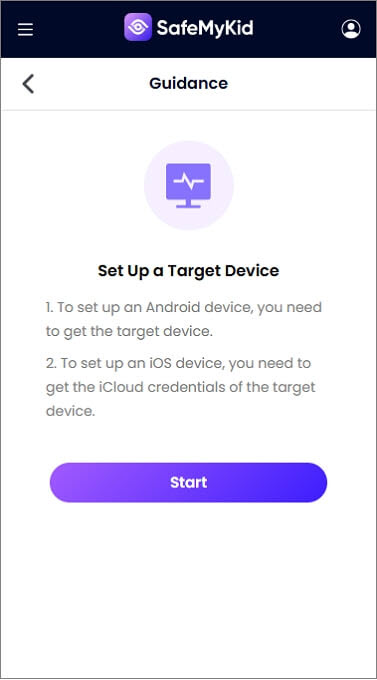Is My Husband Cheating? 10 Unexpected Red Flags

It’s one of the most painful questions anyone in a committed relationship might ask: is my husband cheating? It’s hard to even say those words, let alone confront the reality of them. However, trust is the foundation of any relationship, and if you’re noticing things that feel “off,” it’s natural to want clarity.

In this in-depth guide, I’ll take you through ten actionable signs to watch out for. This isn’t about jumping to conclusions—it’s about gathering information, trusting your instincts, and figuring out the truth in a calm, composed way.
Let’s start with the signs.
Is Your Husband Cheating? 10 Warning Signs You Shouldn’t Ignore
While gut feelings are powerful, it's important to look at clear behavioral patterns before jumping to conclusions. Here are 10 telltale signs that might indicate infidelity—and what you can do about them.
1. Unexplained Changes in Routine
We’re creatures of habit. Most people follow consistent routines, especially in long-term relationships. When your husband suddenly starts deviating from his normal schedule—without a clear explanation—it might be time to dig deeper.
For example, is he:
- Coming home late without a plausible reason?
- Waking up earlier than usual to “go to the gym” when he’s never been a fitness enthusiast?
- Suddenly taking an interest in “work trips” that weren’t part of his routine before?
This isn’t always about cheating—life changes and new hobbies happen. But if the changes come with secrecy, you might need to investigate further.
Actionable Step:
Ask open-ended questions like, “What’s been keeping you so busy lately?” and observe his body language. A genuine answer will be clear and straightforward, while a deflective or overly defensive response might raise more questions.

2. Guarding His Phone Like a Hawk
If he’s suddenly treating his phone like Fort Knox, it’s worth noting. While everyone deserves a level of privacy, secrecy is different. Signs include:
- Keeping his phone on silent or face-down.
- Taking calls in another room.
- Changing his passwords without explanation.
Modern relationships often involve shared trust when it comes to devices. If his phone habits have drastically shifted, it’s a sign he might be hiding something.
What You Can Do:
Bring it up casually: “You’ve been so glued to your phone lately—is everything okay?” This approach is non-confrontational but lets you gauge his reaction.

3. Decline in Intimacy
A sudden shift in physical or emotional intimacy can be a major red flag. If your husband seems less interested in sex, avoids affectionate gestures, or becomes emotionally distant, it could signal that his attention is elsewhere.
Of course, external stressors—like work, family issues, or health problems—can also impact intimacy. The key is to identify whether there’s an emotional connection missing alongside the physical one.
Actionable Tip:
Initiate an honest, non-judgmental conversation. Use “I” statements like, “I feel like we haven’t been as close lately. Is there something bothering you?”
4. Emotional Distance
Emotional infidelity often starts before physical cheating. If your husband seems disconnected—avoiding deep conversations, showing little interest in family life, or becoming less supportive—it’s time to pay attention.
Signs of emotional distance include:
- Reduced eye contact.
- Apathy about your concerns or feelings.
- Avoiding discussions about the future.
This can be one of the hardest signs to interpret because life is full of ups and downs. However, a noticeable, consistent change in how he interacts with you emotionally could be a red flag.
5. A Sudden Change in Appearance
Has your husband recently started working out, updating his wardrobe, or grooming more than usual? These changes might be about personal improvement—but if they coincide with secrecy or emotional distance, they could be for someone else.
Pro Tip:
Compliment his new look to see how he reacts. Say something like, “Wow, you’ve been putting so much effort into your appearance—you look great!” His response may reveal more than you expect.
6. Frequent Mention of a ‘Friend’
If your husband frequently brings up a specific coworker or “friend,” it’s worth noting. Whether it’s a new female colleague or an old flame he’s reconnected with, frequent mentions could hint at an emotional or physical connection.
What to Watch For:
- Is he overly enthusiastic when talking about her?
- Does he share details about their interactions that seem unnecessary?
- Does he get defensive or dismissive if you ask about her?
Actionable Step:
Ask nonchalantly, “You’ve mentioned [Name] a lot recently—how did you two meet?” This keeps the tone neutral while showing you’re paying attention.
7. Unexplained Expenses
One of the biggest clues to infidelity is financial secrecy. If you’ve noticed unexplained charges on joint accounts—like expensive gifts, hotel stays, or unusual dinners—it could point to cheating.
Other financial red flags include:
- Withdrawing cash frequently.
- Opening new credit cards without your knowledge.
- Refusing to share financial information.
What You Can Do:
Suggest sitting down together to review finances under the guise of budgeting. If he becomes defensive, it might signal he’s hiding something.
8. Spending More Time Online
Does your husband seem glued to his phone, laptop, or tablet, especially late at night? While it could be harmless browsing or gaming, excessive time online might mean he’s texting, video chatting, or interacting with someone new.
Red Flags Include:
- Hiding his screen when you walk by.
- Spending more time on social media than usual.
- Seeming irritable when interrupted.
Pro Tip:
Mention how you miss spending quality time together. Suggest an offline activity like cooking, watching a movie, or going for a walk.

9. Defensiveness
When someone feels guilty, they often become overly defensive. If your husband reacts disproportionately to simple questions, it could be because he’s hiding something.
For instance:
You: “Who were you texting just now?”
Him: “Why are you always questioning me? Can’t I have some privacy?”
What You Can Do:
Approach such situations calmly. Avoid accusations and frame your concern as a curiosity: “I noticed you seemed upset—did something happen?”
10. Trusting Your Gut
Your instincts are powerful. If you feel deep down that something isn’t right, don’t ignore it. Your intuition is often based on subtle cues—changes in tone, behavior, or energy that your conscious mind may not fully process.
What to Do:
Write down your observations to identify patterns. This will help you determine whether your concerns are valid or influenced by external stressors.
How to Approach the Conversation About Cheating
While recognizing the signs of infidelity is crucial, knowing how to approach your partner about your concerns is equally important. Confronting your husband about cheating can be an emotionally charged conversation, so it’s essential to prepare yourself. Here are some tips for discussing this sensitive issue calmly and effectively:
- Choose the Right Time: Find a time when both of you are calm and not distracted.
- Use "I" Statements: Instead of blaming, express your feelings. For example, say, "I feel distant from you lately," instead of "You’re cheating on me."
- Stay Calm: Emotions can run high during these discussions. Try to stay composed and avoid accusations.
- Be Ready to Listen: Give your husband the chance to explain himself, and try to listen without interrupting.
- Seek Support: It might be helpful to talk to a counselor or a trusted friend before having this conversation to gain emotional support.

Less Obvious Signs of Cheating & How to Handle Them
Not all signs of infidelity are obvious. Sometimes, subtle behavioral changes can indicate something is off. Here are a few lesser-known red flags and how to approach them calmly.
| Subtle Sign | What It Might Mean | How to Respond |
|---|---|---|
| Overreacting to Simple Questions | Guilt may cause excessive defensiveness. | Use a neutral tone: "You seem stressed—everything okay?" |
| Increased Privacy with Devices | Hiding messages or frequently changing passwords. | Observe patterns before addressing concerns. |
| Overly Interested in Your Schedule | He may be tracking your whereabouts. | Casually change plans and note his reaction. |
| Last-Minute Plans & Excuses | Avoiding time at home for unknown reasons. | Ask open-ended questions: "What was the event about?" |
| Changed Social Media Habits | Hiding interactions, deleting posts, or new secrecy. | Notice shifts in privacy settings or engagement. |
| Disinterest in Shared Activities | Emotional detachment from the relationship. | Suggest doing something nostalgic together. |
How to Rebuild Trust After Infidelity
If you discover your husband is cheating, the road to rebuilding trust can be challenging. However, it's not impossible. Here's what you can do if you both decide to work through this together:
- Acknowledge the Betrayal: Both partners need to be honest about what happened and why it happened.
- Seek Counseling: Marriage therapy can provide a safe space to work through the trauma of infidelity.
- Set Boundaries: If you both decide to continue the relationship, establish clear boundaries to prevent future issues.
- Rebuild Communication: Open, honest communication is key. Regular check-ins and discussions about feelings can help rebuild trust over time.
- Give it Time: Trust isn't rebuilt overnight. Be patient with each other and the process.
How SafeMyKid Can Help To Catch If Husband Is Cheating
If you’re asking yourself, is my husband cheating, and the signs point to yes, it’s natural to want evidence before taking the next step. Tools like SafeMyKid, while primarily designed for parental monitoring, can offer discreet, effective solutions to track activity without being invasive.
Features of SafeMyKid
Unlike other apps, SafeMyKid provides unparalleled access to over 56 data types, ensuring no detail goes unnoticed. It’s perfect if you need to discreetly uncover the truth about your partner’s behavior.
- Stealth Mode: Operates discreetly in the background, so the user never knows it’s there.
- Comprehensive Monitoring: Access text messages, call logs, browsing history, and even deleted data.
- GPS Tracking: View real-time location and set geofencing alerts.
- Social Media Spy: Track interactions on platforms like WhatsApp, Instagram, and Facebook.
- Keylogging: Record every keystroke, including passwords and search queries.
Steps to Set Up SafeMyKid
Step 1.Sign up and create an account.

Step 2.Set up the app.
For iPhone: Log in with the target device’s iCloud credentials—no app installation is needed.
For Android: Install the app directly on the target phone.

Step 3.Start monitoring to see if the husband is cheating.

FAQs on Cheating in Relationships
To wrap up this comprehensive guide, here are some of the most frequently asked questions about recognizing the signs of infidelity in a marriage. These answers aim to clear up any doubts and help you make an informed decision when handling concerns about trust and relationships.
1. What are the first signs of cheating in a marriage?
The first signs often include changes in behavior, such as emotional distance, increased secrecy, or unexplained changes in routine. Other common indicators are guarded phone habits, frequent mentions of a new “friend,” and a sudden change in appearance or priorities.
2. How can I tell if my suspicions are valid or just paranoia?
It’s natural to feel uncertain. To differentiate, observe your husband’s behavior over time. Look for consistent patterns rather than isolated incidents. Writing down your observations can help you spot trends and identify whether your concerns are valid.
3. What should I do if I suspect my husband is cheating?
Stay calm and avoid jumping to conclusions. Have an honest, non-confrontational conversation with your husband. Share your feelings and observations using “I” statements, such as, “I feel like we’ve been distant lately, and I’d like to understand why.”
4. Can tools like SafeMyKid really help in uncovering the truth?
Yes, tools like SafeMyKid can provide discreet monitoring of phone activities, location, and more. While it’s a practical option for gathering evidence, it’s important to consider the ethical and legal implications of using such tools.
5. Are there legitimate reasons for sudden changes in behavior?
Absolutely. Life events such as stress at work, health issues, or personal growth can cause changes in behavior. The key is to observe whether these changes are accompanied by secrecy or a lack of communication
6. Is emotional cheating as serious as physical cheating?
Emotional cheating can be just as damaging as physical cheating, as it often involves a breach of trust and intimacy. Emotional affairs can lead to feelings of betrayal and a loss of connection in the relationship.
Final Thoughts
If you’re asking, is my husband cheating, these ten signs offer a practical guide to understanding what’s happening in your relationship. Remember, no single sign confirms infidelity. Use this information to have open, honest conversations before making conclusions.
If trust has been severely damaged, tools like SafeMyKid can provide the clarity you need to make informed decisions. Whether it’s for your peace of mind or to protect your family’s future, knowing the truth is always better than living in doubt.
Your trust, your feelings, and your happiness matter. Take the steps you need to regain clarity and control.


